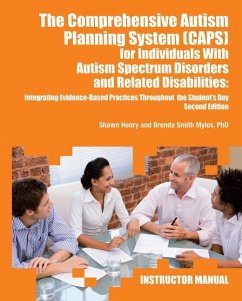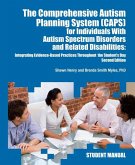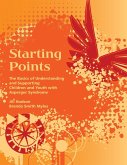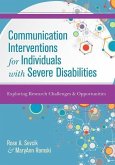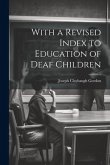The CAPS (The Comprehensive Autism Planning System) is a tool to help teachers and educational teams to plan and implement a student's program across the school. This includes planning for the implementation of the IEP (Individualized Education Program) and the curriculum relevant to the student. It takes the team through the process of planning out the goals/objectives to be targeted in each activity of the day, the modifications and accommodations that should be provided to support the student in each activity, the sensory supports to help the student stay engaged, and the communication and social supports that the student needs to be successful. In addition, it identifies the type of data that should be collected for each area and the reinforcers that have been chosen for use for success. As with many tools, while this system was developed for use with individuals on the autism spectrum, it can be an essential tool for any student regardless of the types of supports and needs they have. There are various forms of this system that focus on targeting specific skills for each activity and identifying the communication, sensory, and reinforcement supports that will be needed for each situation. The instructor manual includes the following features: For Each Chapter: Learner Objectives - List of learner objectives as a preview of the chapter's content. The learner objectives also highlight information that readers are expected to understand and be able to explain after reading the chapter. Chapter Summary - Overview of the main points of the chapter as a refresher prior to reviewing recommendations for in-class activities, project ideas, paper topic ideas, PowerPoint presentations, chapter tests, and the comprehensive exam. Chapter Review Questions and Answers - Questions and accompanying answers designed to check understanding of and ability to explain the information discussed within the chapter. The review questions may also be used as a study guide when preparing for tests and/or exams that may be administered in class. Glossary - Alphabetical listing of vocabulary terms presented in grey boldface with the book. In-Class Activities - Suggestions for in-class activities related to the chapter. Long- and Short-Term Project Ideas - Project ideas that range from those appropriate for assignment at the beginning of the semester and that are designed to be completed over the course of the semester, to those that are relevant to a specific chapter and should be assigned either prior to or following in-class discussion of a given chapter. Paper Topic Ideas - Recommended topics for student papers. Online and Support Materials: Chapter PowerPoint Presentations - Text-based PowerPoint presentations highlighting the main points of each chapter. Instructors may add the slide design of their choice to each presentation and modify slides as they wish. PowerPoint slides are reproducible for educational purposes only. Chapter Tests - A printable test for each chapter with an accompanying answer key. Instructors may modify these as they wish. They may be shared with students as a self-check of their knowledge and understanding of a chapter's material, as a study guide, or as an inclass test or quiz. Tests are reproducible for educational purposes in your course only. Comprehensive Exam - A comprehensive exam with an accompanying answer key that largely consists of short-answer questions intended to evaluate students' overall understanding of context blindness as presented in the book. Instructors may modify the exam as they wish. The exam may be reproduced for educational purposes in your course only.
Hinweis: Dieser Artikel kann nur an eine deutsche Lieferadresse ausgeliefert werden.
Hinweis: Dieser Artikel kann nur an eine deutsche Lieferadresse ausgeliefert werden.

